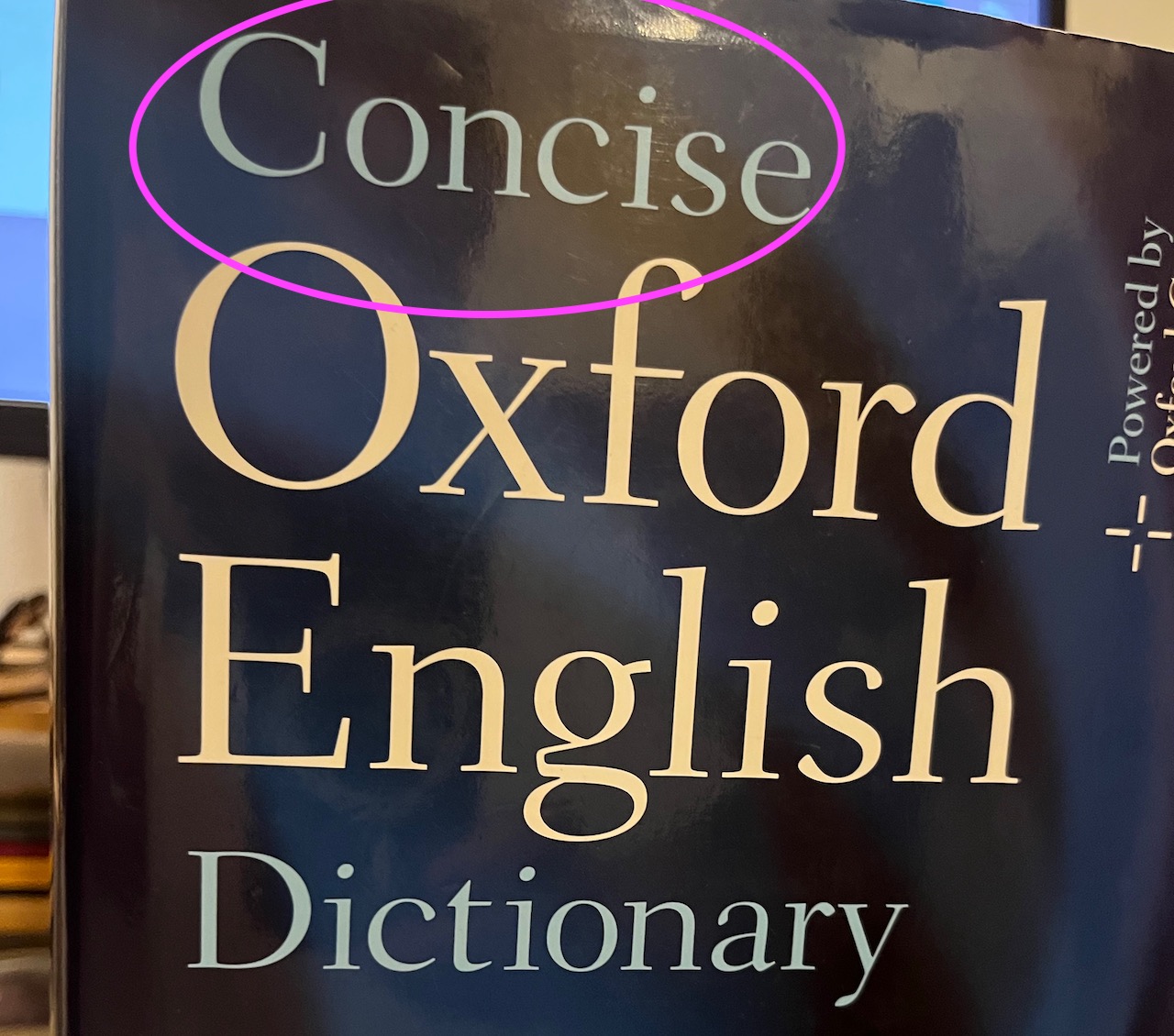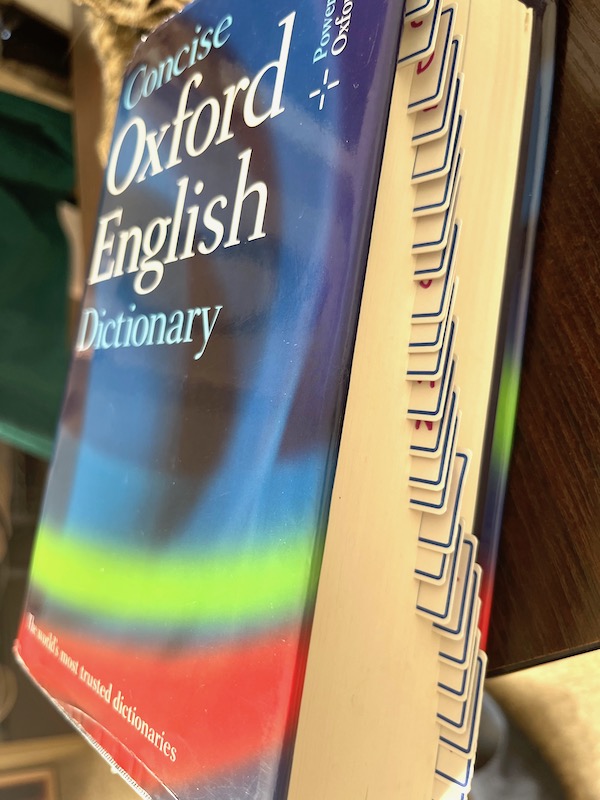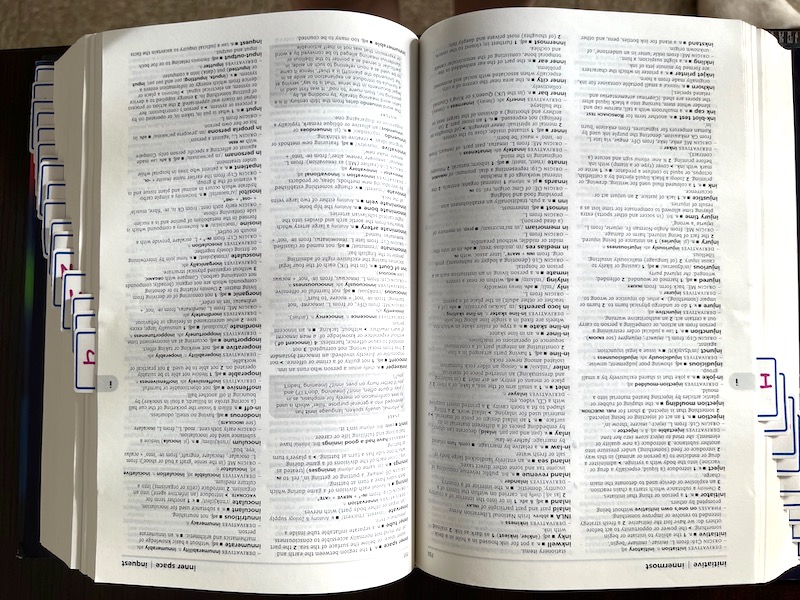
Study English Effectively|Why the Concise Oxford English Dictionary Is the Best Choice
Study English Effectively|Why the Concise Oxford English Dictionary Is the Best Choice
- 1 Study English Effectively|Why the Concise Oxford English Dictionary Is the Best Choice
- 2 Train Your Brain to Think in English
- 3 Why Online Lookups Aren’t Enough
- 4 The Power of “Concise”
- 5 A Bookstore Memory: Shakespeare & Co.
- 6 Example: The Word “Perfect”
- 7 Features of the Concise Oxford English Dictionary
- 8 Why English–English Dictionaries Work Best
- 9 Final Thought
Train Your Brain to Think in English
One of the secrets to developing an “English brain” is to think directly in English, without translating into Japanese. To do this, you need to expand your vocabulary. Many people rely on Google search or translation apps, but if you want lasting results, nothing beats having a reliable English–English dictionary.
Among many options, I highly recommend the Concise Oxford English Dictionary. It’s clear, easy to understand, and helps words stay in your memory.
Why Online Lookups Aren’t Enough
Sure, searching for words online is quick and convenient. I often use it too. But there’s a big problem: once you close the browser, your search history disappears. You forget what you looked up, and often you even forget that you checked the word at all.
Traditional dictionaries leave a “trace.” You can mark the words, revisit them, and strengthen your memory. That’s why owning a good paper dictionary still makes sense.
The Power of “Concise”

When I first picked up the Concise Oxford English Dictionary, the word concise caught my eye. It means “short and clear.” And that’s exactly what this book delivers—definitions written in simple, easy-to-remember English.
Back in university, I survived final exams thanks to concise study guides. Short explanations always stick better. That’s why when I browsed this dictionary and saw how easy it was to absorb the definitions, I bought it—even though it felt expensive at the time.
The result? I stopped relying on Japanese translations. I truly began to think in English.
A Bookstore Memory: Shakespeare & Co.
I discovered this dictionary at Shakespeare & Co., a bookstore near Hunter College in New York. After piano practice, I would often stop by. Money was tight, but I knew this dictionary would be a valuable investment—and it really was.
Example: The Word “Perfect”
Here’s a definition straight from my copy:
“having all the required elements, qualities, or characteristics.”
Simple, right? The beauty is that even if a difficult word appears in the definition, you can look it up again within the same dictionary. Step by step, you’ll reach simpler words and naturally build your vocabulary—just like how we all learned Japanese as children.
Features of the Concise Oxford English Dictionary
- Over 24,000 words – including slang and everyday expressions.
- Lightweight despite its size – easy to carry compared to other thick dictionaries.
- Easy to flip through – the pages open smoothly, making word searches enjoyable.
I also recommend adding Daiso index tabs in alphabetical order to make quick searches even easier.
Why English–English Dictionaries Work Best

Japanese and English are different languages. Literal translation can only go so far—you’ll often lose the nuance. That’s why learning English in English is more natural and effective.
With the Concise Oxford English Dictionary, I was finally able to transition to thinking directly in English. Over time, I even started dreaming in English!
Final Thought
Yes, this dictionary costs more than a quick Google search. But for me, it was worth every penny. I still use it today, circling words with a red pen to track what I’ve already learned. The result: a stronger memory and a true English brain.
Make sure to buy the version labeled Concise Oxford English Dictionary, since Oxford publishes many other editions. Buy it on Amazon